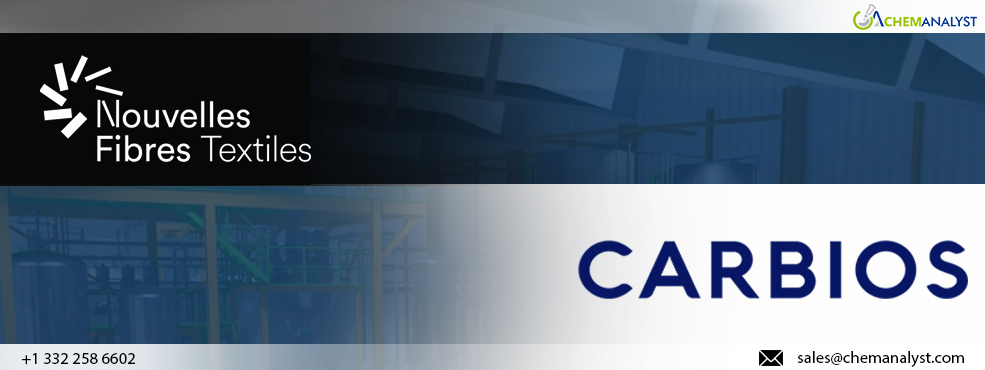Welcome To ChemAnalyst

CARBIOS, a pioneer in reinventing the lifecycle of plastics and textiles, has partnered with Nouvelles Fibres Textiles, a French company specializing in end-of-life textile recovery. The two companies have signed a Memorandum of Understanding to establish a contract for supplying polyester textiles to the world’s first PET biorecycling plant, currently being constructed in Longlaville, France. These textiles, derived from used or end-of-life materials prepared in France by Nouvelles Fibres Textiles, will be recycled using CARBIOS' innovative enzymatic depolymerization technology.
Under this agreement, starting from 2026, 5,000 tons of polyester textiles per year will be redirected to biorecycling over an initial five-year period. This initiative underscores the commitment of both CARBIOS and Nouvelles Fibres Textiles to achieving textile circularity and advancing sustainability in the textile sector. The contract demonstrates a significant step towards enhancing the recycling of textiles and promoting a more sustainable approach to managing end-of-life materials in the industry.
In November 2023, Nouvelles Fibres Textiles, in collaboration with its partners, inaugurated a pioneering semi-industrial site with a capacity of 1,000 tons annually. This facility marks the initial phase in the development of a larger unit expected to handle 20,000 to 30,000 tons by 2026.
The site serves as a research center for textile recycling, leveraging the expertise of Andritz Laroche, a global leader in textile recycling; Pellenc ST, a French innovator in intelligent sorting solutions; Synergie TLC, a prominent French entity in textile collection and sorting for solidarity; and the Tissages de Charlieu group, known for its significant roles in weaving, garment manufacturing, and textile recycling.
The facility’s advanced technology enables the transformation of used textiles into high-quality raw materials. It features automated sorting by composition and efficiently removes hard elements such as buttons, zippers, and patches. The processed materials are then supplied to various industries that utilize textile fibers, including non-wovens, insulation, plastic, and textiles, enhancing the circularity and sustainability of the textile sector.
CARBIOS' biorecycling technology employs specialized enzymes to decompose polyester fibers into their fundamental building blocks. These basic components are then repurposed to create high-quality recycled PET materials, including fibers for the textile industry. This “fiber-to-fiber” approach facilitates the establishment of a fully circular polyester lifecycle, significantly advancing the sustainability and scalability of polyester recycling.
Emmanuel Ladent, CEO of CARBIOS, emphasized the company's dual role as both a biotech innovator and a significant player in the textile industry. CARBIOS is collaborating with Nouvelles Fibres Textiles to advance a truly circular economy for textiles. He noted that, similar to the progress made in the packaging sector, large-scale polyester recycling initiatives are crucial for enhancing collection and preparation infrastructures. This partnership highlights how the French industry is evolving through the integration of various value chain components, from collection and preparation to recycling, demonstrating the industry's capacity for growth and innovation.
Eric Boël and Etienne Wiroth, Co-directors of Nouvelles Fibres Textiles, highlighted the critical role of the circular economy in addressing the environmental, economic, and social impacts of textile industry over-consumption. They argue that while the industry's diverse range of textiles complicates large-scale recycling, innovative technologies such as CARBIOS' enzymatic depolymerization and advanced automated sorting are crucial in overcoming these challenges. Their partnership underscores the importance of collaboration between companies to establish a circular value chain, aiming to make the textile sector a model of sustainability that benefits both people and the planet, from production through to consumption.
We use cookies to deliver the best possible experience on our website. To learn more, visit our Privacy Policy. By continuing to use this site or by closing this box, you consent to our use of cookies. More info.
